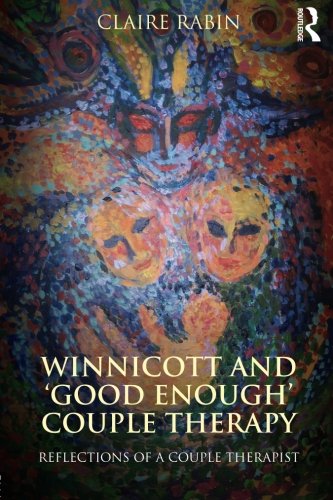

Most ebook files are in PDF format, so you can easily read them using various software such as Foxit Reader or directly on the Google Chrome browser.
Some ebook files are released by publishers in other formats such as .awz, .mobi, .epub, .fb2, etc. You may need to install specific software to read these formats on mobile/PC, such as Calibre.
Please read the tutorial at this link: https://ebookbell.com/faq
We offer FREE conversion to the popular formats you request; however, this may take some time. Therefore, right after payment, please email us, and we will try to provide the service as quickly as possible.
For some exceptional file formats or broken links (if any), please refrain from opening any disputes. Instead, email us first, and we will try to assist within a maximum of 6 hours.
EbookBell Team

0.0
0 reviewsClaire Rabin innovatively applies the Winnicottian theory of the ‘good enough mother’ to couple therapy, redirecting attention to the therapeutic relationship and the therapist’s self-awareness regardless of the methods used. Using this lens, even the therapist’s mistakes become an opportunity for repairing both the therapeutic relationship and the partners’ own personal maturity.
The intensity and pressure of couple therapy can make each case a test of the therapist’s competence. The need for neutrality constitutes on-going pressure on the therapist and the proliferation of therapeutic methods can cause confusion about which might be most useful in each situation. Applying theory effectively is easier said than done within the context of the powerful emotions unleashed in sessions, which can result in a catastrophic atmosphere. These factors can make it hard for therapists to utilise their own skills and knowledge within sessions of couple therapy.
The book explores how therapists and couples can unintentionally further ‘false selves’ without realising how the very tools of change may counter authenticity. Featuring interviews with an international range of couple therapists and case studies from the author’s own experiences, the key aspects of the ‘good enough’ concept are elaborated. Rabin shows how these ideas can strengthen therapists’ sense of security and safety in using their lived experience and intuition.
Winnicott and Good Enough Couple Therapy is the ideal book for clinicians seeking an overarching framework for working with couples or families, as well as those concerned with the importance of the client-helper relationship.